Sports Injury Rehabilitation: How You Care for Injuries Matters
Neglecting a sports injury can have far-reaching consequences for your physical and mental well-being, social interactions, and athletic career prospects. Properly caring for injuries is crucial for your return to competition and enjoying a high overall quality of life.
Sports injuries are among the challenges the Nebraska Greats Foundation helps athletes like you overcome. We’ll discuss the critical connection between sports injury rehabilitation, getting back to the game, and living your best life outside of sports.
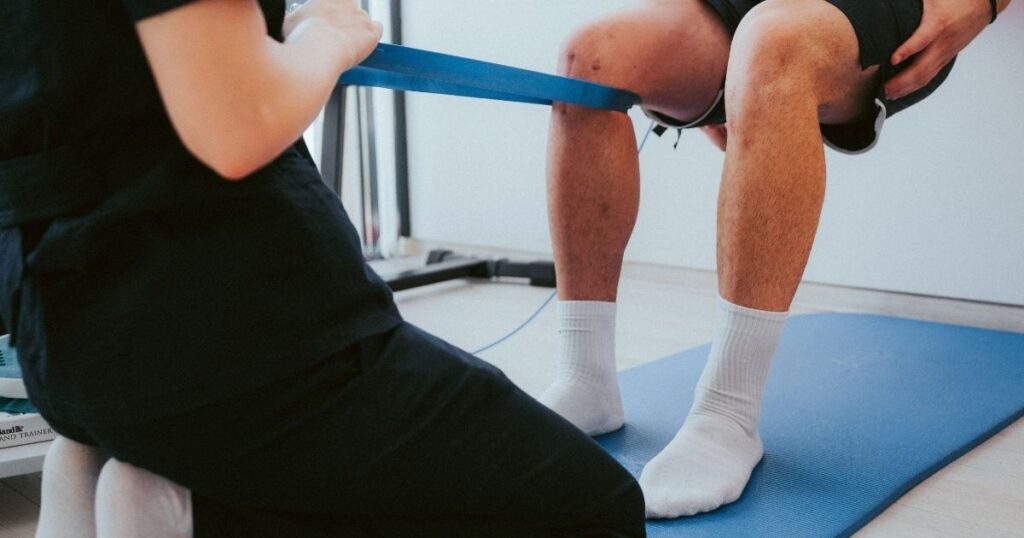
The Importance of Sports Injury Rehabilitation
Sports injury rehabilitation is a comprehensive process that restores athletic function, relieves pain, and prevents re-injury. It involves techniques and therapies tailored to your specific needs.
Proper rehabilitation can speed up recovery and enable you to return to your sport sooner. It also helps improve your athletic performance by restoring strength, flexibility, and endurance.
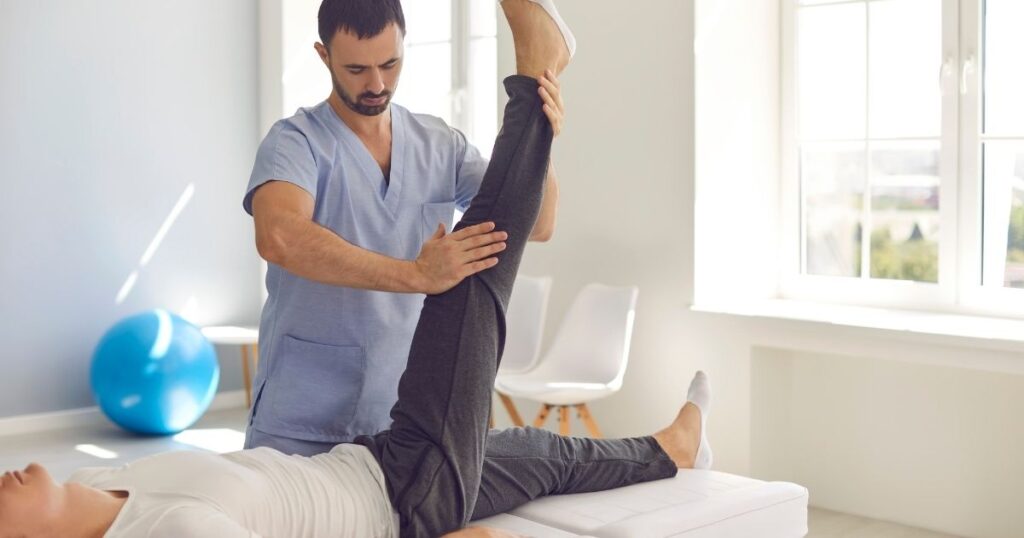
The Nebraska Greats Foundation’s Role in Rehabilitation
The Nebraska Greats Foundation can be a lifeline for athletes recovering from sports injuries, especially those facing financial hardship because of medical bills. Here’s how we help former collegiate athletes in Nebraska so they can prioritize caring for their injuries and completing rehabilitation successfully:
Financial Assistance
Recovering from a sports injury can be expensive. Our grants can alleviate the financial burden and enable athletes to focus on healing. We provide financial support for medical needs, including surgeries, rehabilitation, and physical therapy.
Access to Quality Care
We connect athletes with qualified medical professionals experienced in treating sports injuries. We ensure grant recipients receive the best possible care to maximize their recovery and prevent future complications.
Emotional Support
Our foundation promotes a community of former athletes who understand the challenges of injury recovery. This network provides emotional support and encouragement to help athletes stay motivated and positive throughout the process.
Advocacy
We advocate for the needs of former athletes, raising awareness about the long-term impact of sports injuries and the importance of proper rehabilitation. Our advocacy helps create a supportive environment for athletes navigating their recovery journey.
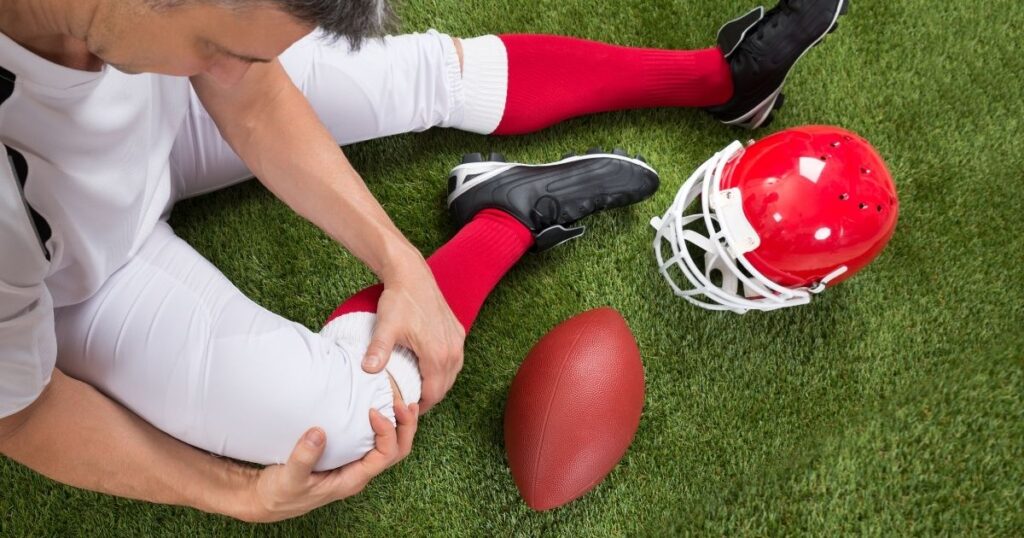
The Risks of Improper Injury Care
Ignoring a sports injury or neglecting proper rehabilitation can have serious and long-lasting consequences. Untreated injuries can affect your physical performance and your long-term well-being.
- Chronic Pain: Improperly addressed injuries can cause chronic pain, limiting daily activities and making a return to sports or even simple tasks difficult.
- Decreased Mobility and Function: Inadequate rehabilitation can impact your ability to regain full range of motion and strength, decreasing mobility and performance.
- Increased Risk of Re-injury: Incomplete healing increases the risk of injury recurrence, potentially trapping you in a cycle of performance setbacks that may cause permanent damage.
- Early Retirement from Sports: Persistent pain, limited mobility, and recurrent injuries can force you to retire from your sport prematurely.
- Psychological Impact: Lingering injuries can significantly impact mental health, leading to frustration, anxiety, and depression.
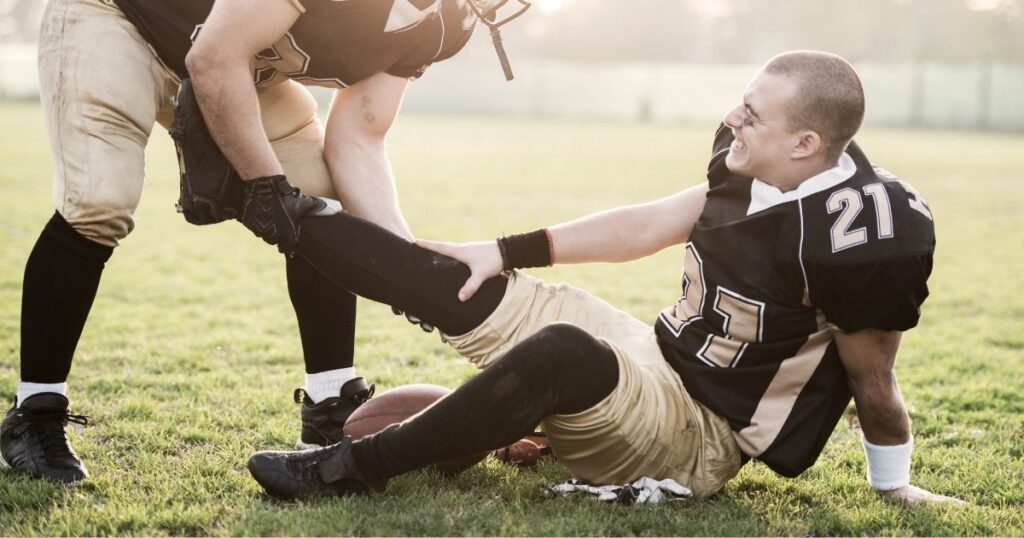
The Impact on Athletic Performance
Neglecting proper rehabilitation can reduce strength, disrupting your ability to generate force and perform at your athletic peak. Injuries can interfere with your body’s natural coordination and balance, making it challenging to execute movements efficiently and safely. Improper healing can prevent consistent training while recurring injury setbacks can lower your confidence and willingness to push your limits.
The Effect on Quality of Life
Pain and mobility issues resulting from improper injury care can limit your participation in everyday activities, affecting your independence and overall enjoyment of life. The inability to engage in sports and social activities because of lingering injuries can lead to social isolation and withdrawal. The medical costs of a poorly managed sports injury can create a financial burden and limit career opportunities, adding stress to the recovery process.
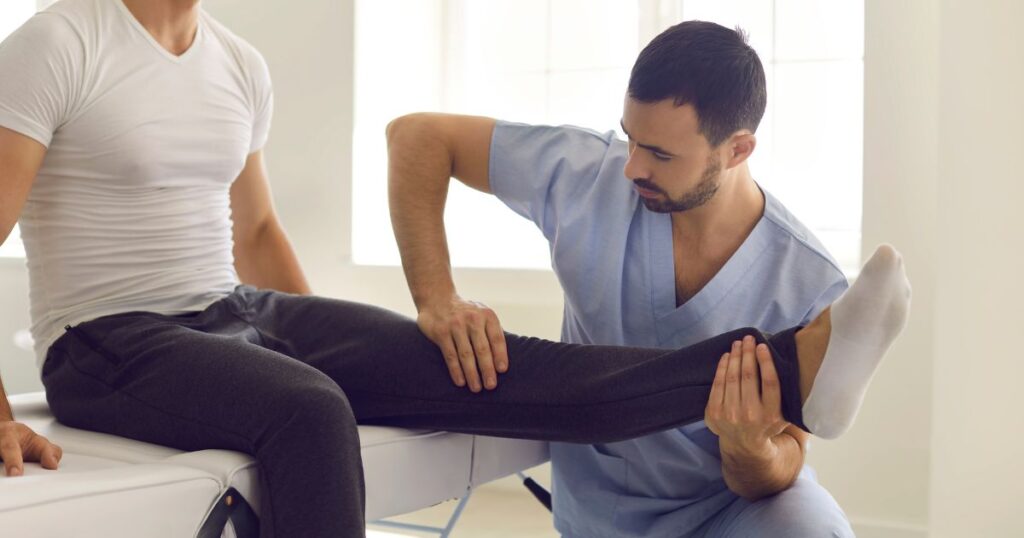
Stages of Sports Injury Rehabilitation
Sports injury rehabilitation typically involves several essential stages in recovering from an athletic injury. A full recovery from a serious injury requires completing all three stages:
- Initial Injury Management: Following the RICE protocol immediately (Rest, Ice, Compression, Elevation) can help minimize swelling and pain. Seeking professional medical evaluation is essential to determining the extent of the injury and developing an appropriate rehabilitation plan.
- Rehabilitation Plan: A qualified physical therapist or athletic trainer will design a personalized plan that may include exercises, manual therapy, and modalities like ultrasound or electrical stimulation. The rehabilitation plan will focus on gradually increasing activity levels and restoring function.
- Long-Term Recovery: Even after returning to sports, long-term recovery is essential to maintain fitness and prevent re-injury. This may involve ongoing exercises, regular check-ups with a healthcare professional, and adopting injury management strategies.
Athletes We’ve Helped
Helping athletes return to their sport is one of the most important goals of the Nebraska Greats Foundation. Here are four athletes who were able to continue their sports careers after our grants made it possible for them to complete the necessary rehabilitation from their injuries.
Evan Taylor
Former UNL basketball star Evan Taylor was forced to leave his professional team in Austria due to injuries requiring surgery and extensive physical therapy. Our foundation provided financial assistance for his medical expenses, allowing him to focus on his recovery.
Anton Gill
Another former UNL basketball standout, Anton Gill, faced significant health challenges while playing professionally overseas, leading to uncovered medical expenses. We provided crucial financial support for his medical care, allowing him to prioritize recovery from his injuries.
Carlos Ortega
York College sophomore and soccer player Carlos Ortega suffered an injury during competition, resulting in significant medical expenses not covered by insurance. Our grant covered these costs, allowing Ortega to continue his studies and athletic career.
Christopher Monje
York College senior and soccer player Christofer Monje suffered a facial injury that required surgery. Uncovered medical expenses created a significant financial burden. We stepped in to cover the costs of his surgery and post-operative care, ensuring Monje could continue his academic and athletic dreams.
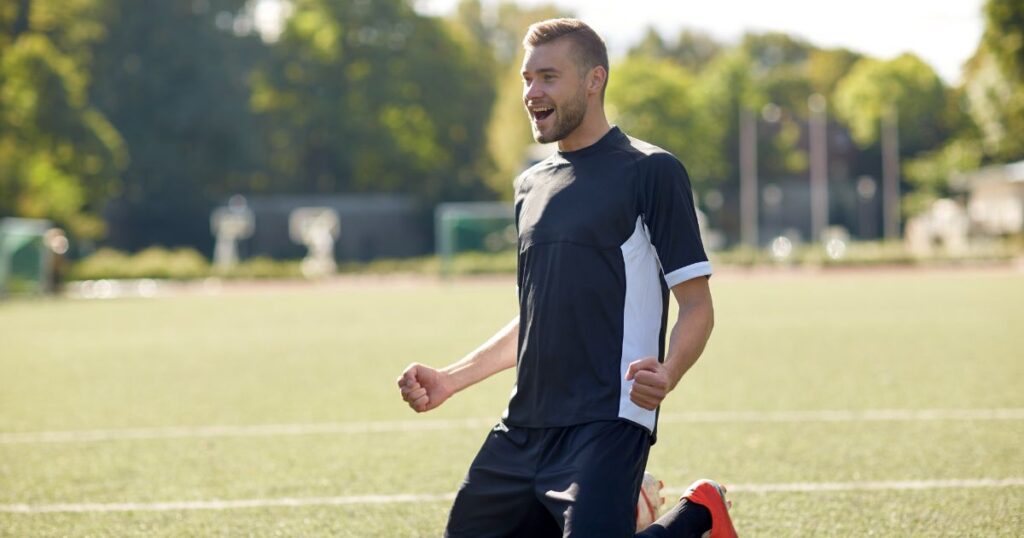
Tips for Successful Sports Injury Rehabilitation
In addition to your body’s natural healing response, your mindset plays a huge part in your rehabilitation. Here are some tips for building the proper mental framework and helping you successfully go through the recovery process:
- Be patient and consistent: Rehabilitation takes time and dedication. Stick to your plan even when progress seems slow.
- Communicate with your healthcare team: Don’t hesitate to ask questions and express any concerns you may have.
- Focus on proper nutrition and sleep: These factors play a crucial role in healing.
- Stay positive and motivated: A positive mindset can significantly aid in recovery.
Helping Athletes Return to the Field
Remember, how you care for your injuries today impacts your athletic performance and life after sports. It’s crucial to take rehabilitation seriously and follow all medical recommendations. You don’t want your injury to end your sports career or, worse, cause long-term effects on your quality of life.
The Nebraska Greats Foundation offers vital resources and support to athletes struggling with sports injury recovery’s physical, emotional, and financial challenges. We help ensure former athletes receive the care they need to regain their health and well-being.
If you’re a current or former Nebraska letter-winning athlete who needs help with medical costs, contact us to learn how we can assist you.
